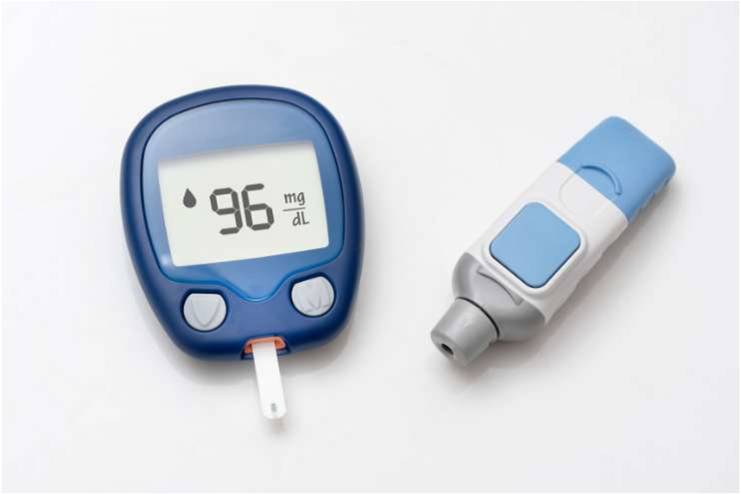Affiliate Disclaimer
Some links in this article are affiliate links. We may earn a small commission if you make a purchase through these links, at no extra cost to you. We only recommend products we find useful to our readersProper diabetes management is essential for maintaining general health and averting significant long-term complications. Improper care of diabetes, including poor diet, medication errors, and missed blood sugar checks, can hasten significant consequences and lower the quality of life.
This article provides 11 crucial pointers to help you avoid typical pitfalls when managing your diabetes treatment. By following these recommendations, you can reduce your chance of developing long-term health issues and manage your disease more effectively.
Knowing How to Treat Diabetes
Diabetes is a long-term illness that alters the body’s ability to metabolize glucose or blood sugar. The two main forms are type 1 diabetes, in which the body cannot create insulin, and Type 2 diabetes, in which the body cannot use insulin efficiently. Insulin is the hormone that controls blood sugar levels.
If not properly managed, diabetes can cause major complications such as kidney damage, nerve damage, and heart disease.
Effective diabetes treatment requires more than just taking medicine. It calls for a holistic, individualized strategy involving insulin medication, regular physical activity, a balanced diet, and blood sugar monitoring. Since each person responds to treatment differently, it’s critical to collaborate closely with healthcare professionals to create a strategy specific to your requirements. This plan lowers the chance of long-term issues and helps control blood sugar levels, resulting in a healthier and more balanced existence.
10 Key Ways to Ensure Effective Diabetes Care:
Diabetes can occur at any age and to anyone. There are no known causes and cures yet. Three kinds of diabetes affect us: type 1, type 2, and gestational diabetes. All three have similar care instructions but differ in how they affect an individual. Check some mistakes to avoid when treating diabetes:
1. Don’t Skip Regular Blood Sugar Monitoring:

Monitoring your blood sugar level regularly is crucial for effective diabetes management. Routine checks provide essential information about your treatment strategy, enabling you to identify trends and make informed decisions regarding medication, exercise, and diet.
Keeping a meticulous log of your readings helps track your progress and understand how different foods and activities impact your blood sugar. This practice is essential for those with additional health issues, as it allows for a personalized treatment plan that improves overall health and keeps you on track to prevent complications.
2. Including Carbohydrates in Your Diet:

Although some people misinterpret them as evil, carbohydrates are necessary for your health and energy levels. The secret is to select the correct kinds of carbohydrates that supply nutrients and energy steadily without raising blood sugar levels. Choose fruits, veggies, and whole grains high in vitamins and fiber.
Speaking with a dietician is crucial to determining the correct portion sizes and which foods high in carbohydrates are best for you. To ensure that you obtain the energy you need without compromising the management of your diabetes, your dietitian can assist in creating a personalized plan that strikes a balance between carbohydrates and your unique health demands.
3. Do Not Stay Hungry for Long:

Most of the time, missing a meal is not a big problem. However, missing meals or eating an unstructured diet can cause dangerously low (hypoglycemia) or high blood sugar levels (hyperglycemia) in those who have diabetes, which can be dangerous. Knowing your numbers is crucial, particularly if taking medications that lower blood sugar.
4. Don’t Fall for Diabetes Myths:

There are several popular misconceptions about diabetes, one of which is the notion that you can stop taking medicine once your blood sugar levels have returned to normal. Diabetes is a condition that requires continual treatment; discontinuing medication without the direction of a medical practitioner can result in significant health hazards. To manage your illness properly, follow your healthcare practitioner’s advice.
5. Avoid Intense Workouts:

Overly rigorous workouts not only reduce the strength of your body but also have the potential to be lethal. Studies show that it raises blood pressure and increases the risk of heart attack or heart stroke. Take preventative measures to avoid it before it develops into consequences like diabetes.
6. Don’t Neglect Foot Care:

People with diabetes must care for their feet to avoid developing ulcers and infections. Maintain a clean and dry environment for your feet, and check them regularly for cuts, blisters, or sores. It is best to avoid walking barefoot and wear shoes that fit correctly. Apply moisturizer to your feet to prevent any dryness and cracking, and seek medical assistance as soon as possible if you experience any problems.
7. Avoid Self-Diagnosing and Self-Medicating:

Avoid adjusting your medication doses or self-medicating without consulting a healthcare provider. Self-diagnosing and changing medication can lead to serious health risks, including incorrect treatment and worsening of your condition. Always seek professional guidance to ensure safe and effective diabetes management and overall health.
8. Don’t Skip Your Daily Walks:

Walking is probably the most crucial exercise for diabetics, and not going on your daily walk can be detrimental. It’s not just about reducing weight but also about giving the body an adequate workout. Walking helps streamline blood pressure and heart rate and pipes in pure oxygen for healthier body functions.
9. Don’t Neglect Healthy Lifestyle:

Adopting a healthy lifestyle goes beyond just sticking to a diet. If you don’t change your other habits, you may not see the outcomes you aim for. Make healthier lifestyle decisions—cut back on alcohol, caffeine, cigarettes, and sugary meals if you want to see real benefits. Making these adjustments will help your body reap the benefits to the fullest.
10. Don’t Forget Regular Medical Checkups:

Regular checkups with a doctor are necessary for good diabetes care. Visiting your healthcare provider regularly enables continuous monitoring of your condition and adjustments required to your treatment plan at the appropriate moment. The purpose of these checkups is to help prevent problems and ensure that your diabetes care continues to be in line with your changes in health requirements.
This compilation of the Top 10 mistakes people make when treating diabetes highlights the need for healthy lifestyle choices, continuous monitoring, and regular medical checkups. Much of the treatment depends on how strong and determined we are, as the journey ahead can either be smooth or stressful.
-
Nov 2017Written by Minu Manisha
-
Oct 2024Edited by Ankita
In this Article





















